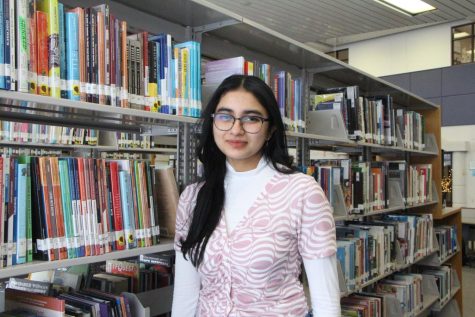The Pandemic has been a Huge Fuel Source for Anti-Asian Racism
April 13, 2021
Since the Covid-19 outbreak, Asians and people of Asian descent have been targets of derogatory language in media reports and statements by active politicians and on social media platforms, where hate speech has spread extensively. Many communities have seen a disturbing wave of anti-Asian violence in recent weeks, including assaults targeting older Asian American individuals, robberies, and burglaries. A surge in brutal attacks included one that resulted in the death of an 84-year-old Thai American, Vicha Ratanapakdee, who died from injuries after being pushed to the sidewalk in San Francisco.
A national coalition aimed at documenting and addressing anti-Asian discrimination during the pandemic known as Stop AAPI Hate received over 2,800 firsthand accounts of anti-Asian hate between March 19 and Dec. 31, 2020. “I’m sickened to my stomach and filled with so much anger and pain, just when we’re already aware of racist attacks and our systemic racism that spawns across the world and especially in our country for our Black brothers and sisters.” Jeannie Mai (‘The Real’ host) said in an interview with USA Today.
Covid-related racism fueled mainly by xenophobia along with the repeated use of the racist description of the virus have led to many of these incidents that came from more than a year ago. This violence has continued into 2021, and President Joe Biden has signed an executive order denouncing xenophobia against the Asian American communities due to the coronavirus pandemic.
The Harmful “Model Minority” Myth
Racial violence against Asian Americans often goes overlooked due to the persistent stereotypes that surround the community. “There is a stereotype and an assumption that Asian Americans have class privilege, that they have high socioeconomic status and education, and that any discrimination doesn’t really happen or feel legitimate,” says Bianca Mabute-Louie, a racial justice educator. The false idea suggests that Asian Americans are more successful than other ethnic minorities because of hard work, education, and inherently law-abiding natures. Because this myth suggests an upward mobility trend, it creates a fallacy that Asian Americans don’t experience struggle or face racial discrimination. Naturally, community advocates and politicians have called for action to combat not only the anti-Asian bigotry that continues to sweep the nation but the stereotypes that contribute to erasing interpersonal violence that Asian Americans experience from day-to-day.
The Atlanta Spa Shooting
On March 16, 2021, a 21-year-old Georgia man went on a shooting spree targeting several spas he said he frequented, according to the police. In the metropolitan area of Atlanta, Georgia, the killings claimed the lives of eight people along with one other person who was injured. Six of the victims were Asian, four women born in Korea, two from China. The remaining two were a mother getting a massage with her husband and a handyman originally from Detroit. Later that day, a suspect, 21-year-old Robert Long was taken into custody.
Know the victims:
Soon Chung Park, 74
Suncha Kim, 69
Yong Ae Yue, 63
Paul Andre Michels, 54
Hyun Jung Grant, 51
Xiaojie Tan, 49
Daoyou Feng, 44
Delaina Ashley Yaun, 33
Remember their names and their stories. Give them the humanity they were denied.
All of the six women born in Asia were working at immigrant-run spas, most finding it difficult to make ends meet. Four were U.S. citizens with one holding a green card and the other being a Chinese national. Some left behind family members leading quiet lives of hard work. According to Atlanta police, Long said he was suffered from “sex addiction” and viewed the spas as a temptation he wanted to eliminate. Though he previously spent time in an evangelical treatment clinic, no excuse can lessen the blame attached to such unjust, cruel actions.
Noting the aforementioned backdrop of rising anti-Asian sentiment in the U.S, many commentators have characterized the shootings as a hate crime as Long is still yet to be charged with such an offense. As a result of the shootings, mass protests against anti-Asian violence have occurred in cities across the United States and the world.
“We feel grief and anger. … What is happening right now cannot be dissociated from our identity as Asians. … But what our voice must convey is clear. We stand against racial discrimination. We condemn violence. You, I and we all have the right to be respected. We will stand together.”
—BTS, the globally popular South Korean pop group, in a statement on Twitter about the rise in anti-Asian hate.
How YOU can help
Understanding systemic racism is one thing, but to actively participate in its prevention and condemnation is another. Showing you’re aware of the news, demonstrating care for wellbeing, and showing support by checking in with AAPI (Asian American and Pacific Islander) peers offers a form of help. Asking individuals an open-ended question such as “how are you feeling?” or “how can I help you” creates an emotional burden for the recipient in their response.
Looking at the present-day crisis, Michelle Kim, CEO of the diversity training provider Awaken, says, “I think that’s an important space that people are craving right now, a sense of community and being seen, and not being gaslighted for feeling traumatized or reacting to the trauma we’re seeing unfold.”
Foot patrols created to aid elderly residents during outings have been an effective response to recent incidents. To add, Chinatown businesses nationwide have been hit inordinately hard during the pandemic so supporting local businesses can help these ethnic enclaves and their residents.
Additionally, the Appleton Area School District has issued a statement of support for our Asian community, acknowledging the painful, recent attacks with an overall theme of diversity being our strength. Read more at Statement of Support of Our Asian Community
Asian Americans have a long history of organizing and aiding in the fight to end racism toward AAPIs as well as Black, Indigenous, LGBTQIA, immigrant, low-income, and other marginalized communities. Michelle Kim suggests learning about this history and supporting the ongoing work of advocacy groups, including Asian Americans Advancing Justice, AAPI Women Lead, Stop AAPI Hate, and countless others to aid in seeing things shift and change.


